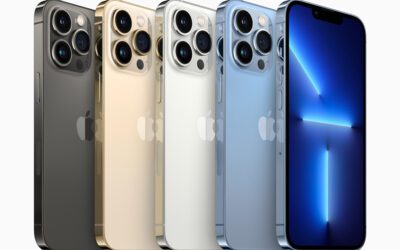In January, several sources reported that the Trump administration was considering expanding on the Obama Administration’s Customs and Border Protection (CBP) U.S. visitor examination in which they are asked to voluntarily supply their social media information.
Apparently, the Trump Administration expansion has been implemented.
Numerous reports have described some Canadian citizens being denied entry to the U.S. to travel to Washington for the women’s march, when they refused to give CBP access to their Facebook accounts and their cellphones.
The Electronic Frontier Foundation has reported that the Council on American-Islamic Relations filed complaints against CBP because they’ve demanded social media information from some Muslim American citizens returning from travel abroad. CBP allegedly demanded cellphone pass codes from these U.S. citizens so they could scan their cellphones.
I’ve been writing about the problems of U.S. citizens and visitors with CBP at the U.S. border since 2008. At that time, CBP was implementing a random laptop confiscation program at the border for the purpose of inspection, directed at visitors and citizens.
The Trump Administration has dramatically increased the inspection’s intrusiveness and severity. If U.S. visitors refuse to turn over their social media and web information, or their cellphones for scanning, it’s highly likely they will be denied entry to the U.S.
On the surface, the new requirements may seem like a great idea to many to protect the U.S. from terror attacks. A major problem is a search of cellphones, laptops and other electronic devices is particularly intrusive, especially when there isn’t even “reasonable suspicion” that a visitor is a terrorist or criminal.
I’ve heard the argument that, “If you’ve got nothing to hide, you’ve got nothing to fear.”
I believe that’s an erroneous contention, as do many others. Speaking to the issue, Bruce Schneier, an American security expert, argues, “Too many wrongly characterize this debate as ‘security versus privacy.’ The real choice is liberty versus control.”
The fact of the matter is that we all have information we want to keep private. Many have passwords, alarm codes, and private personal information in their cellphones and computers. Many have written posts on social media of which they aren’t proud. Business people often have confidential information and trade secrets on their electronic devices.
Once in the hands of the government, we don’t know what will happen to our personal and private information. We don’t know how it will be used or stored. We don’t know how well it will be kept private. We do know that the government doesn’t have an enviable record in protecting its most confidential information. Even government information which should been behind an iron-clad wall has been hacked and leaked in recent years.
The decision to inspect the social media and web activity of visitors plus examine their cellphones is undoubtedly based on the power of social media to help terrorist groups and the cellphone’s ability to assist in their communication. The effectiveness of an inspection at the border, however, is questionable.
I’ve seen from 250 to 1,000 people in passport inspection halls at many U.S. international airports when I’ve returned home. It can often take 45 minutes or more before air travelers are finally in front of a CBP officer. There, visitors are fingerprinted, their passports scanned, and they must answer some questions. If we add to that questions about their web and social media use, plus give CBP time to scan their cellphones, the time it will take to get through the lines could easily double.
If visitors aren’t detained while CBP officials carefully review their social media, web and contact information, by the time a review is made, if they are terrorists, I think it’s fair to expect they will have “vanished into the wind” or already carried out their acts of terrorism. If visitors are going to be regularly delayed for hours, I suspect typical tourists will stay home, along with most business people. That could seriously and irreparably hurt the U.S. and cause significant U.S. tourism industry unemployment.
I would assert this intrusive inspection is highly unlikely to detect terrorists. Terrorists will ensure their cellphones and other devices have no incriminating information, and will submit false social media and web information.
Let’s also not forget that just about all the terrorist acts in the U.S. since 9/11 were perpetrated by natural born or naturalized U.S. citizens.
I believe it’s fair to expect that if the Trump Administration continues this more intrusive mandatory inspection, that foreign countries will do the same to U.S. citizens. At the least, that could seriously damage the ability of U.S. business people to conduct their work, putting their business and employees at risk.
The Trump Administration needs to rethink this new, more intrusive examination of U.S. citizens returning home, and visitors entering the U.S. I think it’s clear that the likely harm it will cause to America far outweighs the highly unlikely chance it will discover a terrorist entering the U.S.
After many years working in corporate America as a chemical engineer, executive and eventually CFO of a multinational manufacturer, Ned founded a tech consulting company and later restarted NSL Photography, his photography business. Before entering the corporate world, Ned worked as a Public Health Engineer for the Philadelphia Department of Public Health. As a well known corporate, travel and wildlife photographer, Ned travels the world writing about travel and photography, as well as running photography workshops, seminars and photowalks. Visit Ned’s Photography Blog and Galleries.



